Sierra Tucson offers effective, comprehensive treatment for individuals in relapse from heroin addiction.
Understanding Treatment
Understanding heroin addiction treatment & long-term sobriety
Because a great deal of bravery is required in order to begin and participate in treatment to overcome an addiction, a great deal of celebration is in order when one completes care to defeat a chemical dependency concern. And if that chemical dependency concern involves an addiction to heroin, a person should be quite proud of themselves once this personal milestone is reached. For individuals who have not struggled with an addiction to heroin, engaging in treatment may seem simple. However, given the amount of personal dedication it takes to look at one’s self and one’s decisions in such a focused environment, overcoming such a struggle most certainly warrants a great deal of pride.
However, in addition to being excited for what the future holds, individuals who have completed treatment for a heroin addiction should also know that the hard work does not end with discharge. Maintaining sobriety means so much more than simply abstaining from the use of heroin. It means learning new ways of coping with stress and turmoil, and restructuring one’s lifestyle in a manner that is conducive to remaining heroin-free. For these reasons, it is important for an individual to partake in follow-up services once more intensive care is finished.
Engaging in aftercare services, such as a partial hospitalization program (PHP), an intensive outpatient program (IOP), and the like, can set the stage for being able to remain heroin-free for a lifetime. Furthermore, it is beneficial for a person to partake in other methods of support, like groups or traditional outpatient services, so that the recovery skills learned in treatment can be built upon and enhanced over time. If such services are not part of a person’s life post-treatment, an individual is far more likely to relapse.
Relapsing is a very real possibility for someone who once battled an addiction to heroin, and treatment centers go to great lengths in order to help individuals prepare for this type of situation. A relapse occurs when a person resumes their use of heroin and other substances, which can compromise an individual’s ability to sustain their sobriety. And while some may believe that relapsing is a character flaw or signifies that an individual is weak in some way, the reality of the situation is that it can happen to anyone. However, with resources and support, experiencing a relapse does not have to be a definite outcome for a person.
Why Do People Relapse?
Reasons why people relapse from heroin addiction
While in treatment, a person is surround by staff and peers who offer ongoing support and guidance as the beginning stages of recovery are navigated. Once treatment is complete, that level of interaction often dissipates, and it is the individual’s responsibility to keep progressing in their recovery. Given this fact, it is imperative for a person to remain in some sort of aftercare program or other such services so that the following does not lead to a relapse:
- Emotional turmoil or stress
- Powerful cravings from heroin
- Being in the company of others who are abusing heroin
- Feeling as though one is not strong enough to maintain sobriety
- Being in a situation in which once is coerced or tempted to abuse heroin
The above examples are just a few of the reasons why individuals succumb to the abuse of heroin once more. In fact, without ample support, a person is at a heightened risk for experiencing more than one relapse following the completion of treatment. However, by seeking follow-up treatment, the aforementioned reasons why an individual may relapse can be prepared for and mitigated altogether.
Preventing Relapse
How to prevent heroin addiction relapse
Ongoing support and guidance can make the difference between remaining heroin-free and developing a heroin addiction once more. And while there are likely to be moments or periods of time in which an individual may question whether or not remaining free from heroin is possible, adhering to the following suggestions can make living a drug-free life more probable:
- Participate in any recommended follow-up services shortly after completing care.
- Speak with knowledgeable professionals who can recommend services for you if you were not given a discharge plan from your recently completed program.
- Share your plans for remaining heroin-free with those you care about most.
- Regularly practice your skills for coping with the temptation to use heroin.
- Become part of a support group like Narcotics Anonymous (N.A.).
- Remain in contact with your sponsor or get one if you do not have a sponsor already.
- Create a daily routine for yourself and follow through on it each day.
- Refrain from being in situations in which heroin is used or around others who are using heroin.
Lastly, if, at any time, you feel as though you are in need of more intensive treatment once more, do not feel as though you are unable to partake in that level of care again. Remember that you must do what is best for you in order to remain free from heroin.
If you or an important person in your life would like to learn more about how to prevent relapse, or if you or a loved one would like to learn more about the treatment options available to overcome a heroin addiction, feel free to contact Sierra Tucson today. We are here to help.













